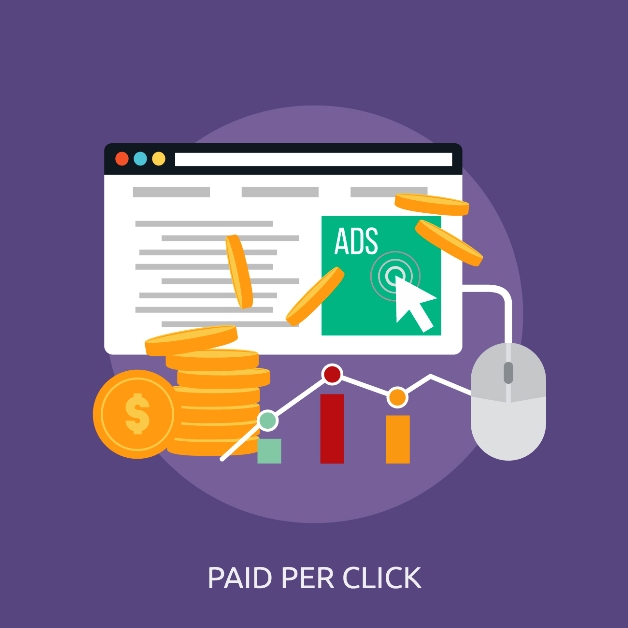Contents
Introducing the 7 Basic Elements of PPC
Elements of PPC: Pay-per-click (PPC) campaigns are powerful tools in the ever-changing world of digital marketing for companies looking to increase their online presence and attract targeted visitors. It is essential to comprehend the foundational aspects of PPC to create successful campaigns. Let’s examine the essential elements that comprise the complex PPC landscape.
1. Keyword Research and Selection
Researching keywords is the cornerstone of any effective PPC campaign. It entails determining and choosing the most pertinent keywords that prospective clients could employ in their product or service searches. To find high-performing keywords, utilize tools for keyword research such as SEMrush or Google Keyword Planner. Make sure you use a combination of exact, phrase, and broad match keywords to cover a broad spectrum of search queries.
2. Compelling Ad Copy
Creating attention-grabbing advertisement copy is crucial to drawing in your target market. The copy in your advertisements should be clear, interesting, and focused on the special features of your good or service. To improve the relevancy of your ad copy, naturally incorporate the focus keyword, “Elements of PPC,” into the copy. Make sure your call-to-action is obvious so that users know what to do next.
3. Landing Page Optimization
When someone clicks on your advertisement, they land on the landing page. For a flawless user experience, this page must be optimized. Make sure the landing page is easy to browse and that the information matches the ad copy. Provide pertinent information and a call to action that is obvious. Mobile optimization and page load speed are equally essential for a satisfying user experience.
4. Ad Extensions
Ad extensions can boost your advertising’s visibility and effectiveness while giving users more information. Site link extensions, callout extensions, and structured snippet extensions are examples of common ad extensions. Use relevant ad extensions to provide further information about your goods or services, which will encourage consumers to click on your advertisement.
5. Bid Management
Setting and modifying your bids carefully will help you strike a balance between price and visibility. Keep a close eye on the effectiveness of your advertisements and modify your bids as necessary. Based on your campaign objectives, automated bidding techniques like target CPA or target ROAS can help you maximize your bids. Although manual bidding offers greater control, it necessitates ongoing observation.
6. Quality Score Optimization
Search engines use a number called Quality Score to assess the relevancy and caliber of your ads. It takes into account elements including landing page experience, click-through rate (CTR), and ad relevancy. Better ad placements and reduced click-through rates can be obtained with a higher quality score. Concentrate on enhancing these elements with relevant landing page optimization, targeted keywords, and ad text.
7. Conversion Tracking
Tracking conversions is crucial to determining how well your PPC campaign is performing. It entails monitoring particular user actions—like completing a form or making a purchase—that occur after they click on your advertisement. Establish conversion monitoring on your PPC platform, then examine the data to determine which campaign components are generating the intended results. Utilize this information to improve your approach and make data-driven judgments.
By paying attention to each of these elements, businesses can create and optimize PPC campaigns that effectively reach their target audience, drive engagement, and achieve their online marketing goals.
More Read, How To Become AI Prompt Engineer
Conclusion of Elements of PPC
Learning the elements of PPC components requires constant improvement and adjustment. Businesses can use PPC to attract targeted traffic and succeed online by combining efficient keyword strategies, compelling ad copy, and optimization of various campaign components. Keep an eye on market developments and use “Analytics” to improve your strategy so that your PPC ads continue to be effective and dynamic.
FAQs: Related to Elements of PPC
1. What is the significance of keyword research in a PPC campaign?
A. To target the appropriate audience in a PPC campaign, keyword research is essential. Businesses may make sure that people who are actively searching for their products or services see their advertising by finding and choosing relevant keywords. In addition to increasing ad relevancy, efficient keyword research also raises click-through rates and boosts return on investment (ROI).
2. How can I optimize my landing pages for a PPC campaign?
A. Higher conversion rates and a flawless user experience depend on landing page optimization. Make sure that the messaging on your landing page and the ad copy are consistent by starting with this alignment. To direct visitors toward the intended activity, include a call to action that is both explicit and persuasive. Make mobile optimization your top priority, and make sure your landing page loads swiftly. A landing page that is properly optimized enhances the user experience and has a big impact on your PPC campaign’s performance.
3. What role do ad extensions play in a PPC strategy?
A. Ad extensions are essential for improving your advertising’s relevancy and visibility. These extra informational tidbits provide viewers with even more motivation to interact with your advertisement. Use ad extensions to highlight particulars about your goods or services, such as callouts, structured snippets, and site connections. Businesses can boost the overall efficacy of their elements of PPC campaigns and achieve better ad performance and higher click-through rates by implementing relevant ad extensions.

